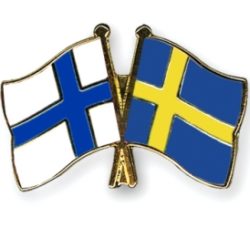State Monopolies in Finland and Sweden Bad for iPoker

Earlier this year, Finland and Sweden both submitted the changes they recently made to their gambling regulations to the European Union Commission, a necessary step in the legislation process for all EU member states. The EU Parliament subsequently had the opportunity to raise objections to any of the legal amendments that it deemed to be in conflict with the prevailing laws of the European Union, but no challenges were issued.
Nevertheless, both the Finnish and Swedish gambling laws in question set up or strengthen state gambling monopolies and could ultimately have a negative impact on the market. As a result, many companies involved in the gambling industry had hoped that the EU Parliament would object to the laws on the grounds that they allow for state-run monopolies; however, the inaction of the ruling body suggests that the laws will stand after all.
Changes in Finland
In Finland, the regulatory system that is currently in place is being consolidated from three regulator agencies to just one. The Raha-automaattiyhdistys (RAY), which oversees online poker and casinos, will be rolled into a single regulatory agency called the Veikkaus, along with the former regulators for sports betting and the national lottery (Veikkaus Oy), and pari-mutuel betting (Fintoto Oy).
In order to pave the way for the merger, a temporary integration company will be set up, which will later be replaced by a state-owned company. The Ministry of the Interior will oversee the project and arrange the necessary draft legislation, while the Finnish Parliament will monitor the whole process. Commenting on the changes, CEO Juha Koponen stated that the change was important in order to ensure that the Finnish gambling system continued to be efficient and competitive. Elaborating further, Koponen explained:
“We are ready for the change and hope that it is implemented as quickly as possible. When we merge, it is essential that we can continue to offer our customers Finnish games that are increasingly attractive, while improving our service. The new gambling operator and the reformed legislation should lead to improved customer experiences especially on the Internet, which the current three-operator model has not actually been designed for.”
Changes in Sweden
The new Swedish law actually reinforces its current state-run monopoly, which in the past has been the focus of much criticism and objections. While the recent amendments include lottery changes that help restrict the sale of tickets to people under the age of 18, the issue of the state-run monopoly has been left unaddressed. Malta had previously insisted that Sweden’s gambling law changes went against article 56 of the Treaty for European Union (TFEU), but as an extract from the amendment text states:
“Sweden argues that the Swedish legislation is consistent with the TFEU and that on an overall assessment shows that the regulatory framework is appropriate and consistent and meets the aims of the regulation. Sweden further submits that the restrictions that occur in rules are necessary and proportionate to ensure the level of protection applicable in the country.”
What’s at Stake
Should the Swedish gambling law be allowed to move forward, operators who are currently providing services to players in Sweden may soon find themselves unable to offer play at all. With a very high GDP per capita, Sweden is an important market for online poker sites and losing access to players there would deal them a crushing blow.
Not only is there cause for concern about the state of online poker in Sweden and Finland, but the lack of interest in the matter from the European Union Parliament also casts a shadow over the state of the industry in Poland. Recently, the Polish government submitted their own gambling policy for review, and while experts are not quite certain how to interpret the complex law, many believe that the legislation will turn the country’s online poker market into a state monopoly. There had been hope that the EU would strike down the law because of this, but that all now seems doubtful in the wake of its inaction concerning Sweden and Finland.
Although the EU Parliament’s decision in the face of the Swedish and Finnish gambling monopolies is distressing, there is still a chance that these laws may ultimately be struck down. The European Union Court of Justice (CJEU) has in the past sided against state monopolies, particularly when the reason for them is due to something other than consumer protection. Thus, there is chance that if a case were brought before the CJEU that the laws would ultimately be considered a violation of European anti-monopoly laws, and rejected.










